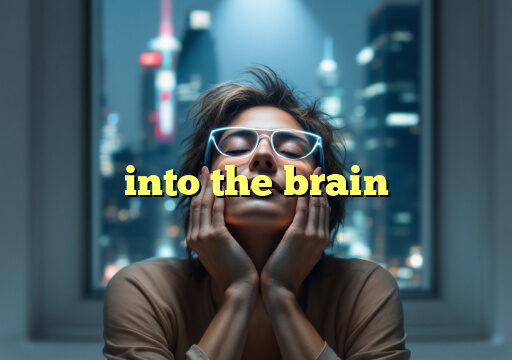The brain is one of the most complex and fascinating organs in the human body. It controls everything we do, from breathing and heartbeat to complex thoughts and emotions. Understanding how the brain functions can give us valuable insights into how we think, feel, and behave.
How Does the Brain Work?
The brain is made up of billions of nerve cells called neurons, which communicate with each other through electrical and chemical signals. These neurons form networks that are responsible for different functions, such as memory, movement, and emotion. The brain also has different regions that specialize in specific tasks, such as the frontal lobe for decision-making and the occipital lobe for vision.
When we think, feel, or do something, different parts of the brain are activated and work together to produce the desired outcome. For example, when we read a book, the visual cortex processes the words we see, while the language centers interpret their meaning. This complex interplay between different brain regions is what allows us to perceive the world around us and interact with it.
Key Components of Brain Functionality
There are several key components of brain functionality that play a critical role in how we think and behave:
- Neurotransmitters: Chemical messengers that transmit signals between neurons and regulate various brain functions, such as mood, memory, and sleep.
- Synapses: Tiny gaps between neurons where communication takes place through the release of neurotransmitters.
- Neuroplasticity: The brain's ability to reorganize itself by forming new connections between neurons in response to learning and experience.
- Brain Waves: Electrical patterns produced by the brain that reflect different states of consciousness, such as deep sleep or focused attention.
The Role of Neurotransmitters
Neurotransmitters play a crucial role in brain functionality by transmitting signals between neurons. There are many different types of neurotransmitters, each with its own specific function. For example, dopamine is involved in motivation and reward, while serotonin regulates mood and emotions.
Imbalances in neurotransmitter levels can lead to various mental health disorders, such as depression, anxiety, and schizophrenia. Medications that target neurotransmitter activity are often used to treat these conditions and restore balance in the brain.
Neuroplasticity: The Brain's Amazing Adaptability
One of the most fascinating aspects of brain functionality is neuroplasticity, the brain's ability to reorganize itself in response to learning and experience. This phenomenon allows us to adapt to new situations, acquire new skills, and recover from brain injuries.
For example, studies have shown that practicing a skill, such as playing a musical instrument or speaking a foreign language, can lead to changes in the brain's structure and function. This reshaping of neural networks is what enables us to improve our abilities over time and become more proficient in various tasks.
Understanding Brain Waves
Brain waves are another important aspect of brain functionality that reflect different states of consciousness and mental activity. There are several types of brain waves, each associated with specific states, such as:
- Delta Waves: Associated with deep sleep and unconsciousness.
- Theta Waves: Associated with relaxation and light sleep.
- Alpha Waves: Associated with wakeful relaxation and meditation.
- Beta Waves: Associated with focused attention and problem-solving.
- Gamma Waves: Associated with higher cognitive functions, such as memory and perception.
By monitoring brain waves, researchers can gain insights into cognitive processes and mental health disorders. For example, abnormalities in brain wave patterns have been linked to conditions such as epilepsy, ADHD, and Alzheimer's disease.
The Importance of Brain Health
Maintaining brain health is essential for overall well-being and cognitive function. There are several ways to support brain health, such as:
- Getting regular exercise to improve blood flow to the brain and promote the growth of new neurons.
- Eating a healthy diet rich in antioxidants, omega-3 fatty acids, and brain-boosting nutrients.
- Engaging in mental activities, such as puzzles, reading, and learning new skills, to stimulate the brain and enhance cognitive function.
- Getting enough quality sleep to allow the brain to rest and consolidate memories.
- Managing stress through relaxation techniques, meditation, and mindfulness practices.
- Avoiding smoking, excessive alcohol consumption, and drug use, which can damage brain cells and impair cognitive function.
Conclusion
The brain is a remarkable organ that governs every aspect of our lives. Understanding how the brain functions can help us appreciate its complexity and unlock its full potential. By supporting brain health and embracing neuroplasticity, we can improve cognitive function, enhance learning and memory, and maintain overall well-being.
FAQs
Q: Can the brain regenerate cells?
A: Yes, the brain has the ability to generate new neurons through a process called neurogenesis. This phenomenon occurs in specific regions of the brain, such as the hippocampus, and is influenced by factors like exercise, diet, and mental stimulation.
Q: How does age affect brain functionality?
A: As we age, certain cognitive functions may decline due to factors like reduced blood flow to the brain, decreased neurotransmitter levels, and changes in brain structure. However, engaging in activities that promote brain health, such as exercise, cognitive stimulation, and social interaction, can help mitigate these effects and support overall cognitive function.
Q: Can brain functionality be improved through supplementation?
A: While some supplements may support brain health and cognitive function, such as omega-3 fatty acids, vitamin E, and ginkgo biloba, it's essential to consult with a healthcare provider before adding any new supplements to your routine. A balanced diet, regular exercise, and mental stimulation are still the most effective ways to support brain functionality.
Unlock Your Mental Potential




